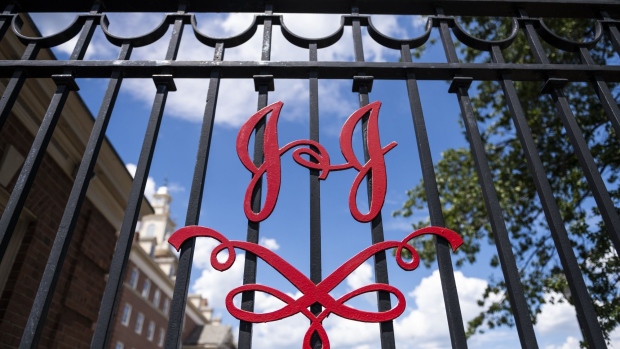Feb 21, 2023
J&J Is Rejected by Supreme Court Over $302 Million Vaginal-Mesh Award
, Bloomberg News

(Bloomberg) -- The US Supreme Court rejected a Johnson & Johnson appeal, leaving intact a $302 million award against the company for misrepresenting the risks of vaginal-mesh implants to California consumers.
The rebuff is a victory for California, the first state to go to trial against the company after thousands of US women sued and some products were recalled. The Supreme Court made no comment in turning away the appeal by J&J and its Ethicon unit.
J&J contended the company wasn’t given fair notice that it could face such steep penalties for using marketing materials it says weren’t proven to have reached consumers. A California state judge in San Diego originally awarded $344 million before an appeals court cut $42 million from the sum.
Business groups including the US Chamber of Commerce and the National Association of Manufacturers backed the appeal, saying states are abusing their unfair competition laws to impose millions of dollars in penalties for practices that don’t cause any harm.
“The United States Supreme Court’s decision leaves unresolved significant legal questions that courts across the country will continue to face,” J&J said in an emailed statement. “Without clarity from the Supreme Court, the patchwork of vague state statutes will continue to result in uneven, unclear, and unfair enforcement that harms both consumers and businesses.”
California Attorney General Rob Bonta urged the Supreme Court to reject the appeal. State officials said the company intentionally concealed serious risk and complication information while mounting an aggressive marketing campaign.
100,000 Lawsuits
The company maintained over the years it responsibly communicated the risks and benefits of its mesh products to both doctors and patients. J&J at one point faced more than 100,000 lawsuits over the products, which were intended to bolster sagging organs or treat incontinence in women. Many of those cases have been settled.
J&J withdrew some of its vaginal-mesh lines from the market in 2012 after facing complaints by thousands of women that the products — threaded into place through incisions in the vagina — eroded over time, causing pain and injuries.
The company agreed to pay at least $117 million in 2019 to settle claims by 45 other states and the District of Columbia.
In October, J&J said a trial in a suit by Kentucky over its mesh marketing was set for May. Officials argued more than 15,000 women in the state had meshes inserted to deal with medical issues without having J&J properly disclose the health risks. Last week, the company agreed to pay $9.9 million to resolve the state’s claims.
The case is Johnson & Johnson v. California, 22-247.
(Updates with settlement in Kentucky case.)
©2023 Bloomberg L.P.


